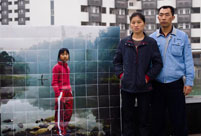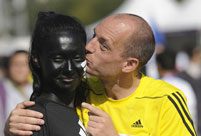Sketchy process
But obtaining funds is an incredibly difficult task for Professor Chen from Fudan, who told the Global Times that the process of applying for major national scientific research project funds starts with a key official document named "Guidebook for Applications," which was written by several key experts appointed by the authorities.
On the surface, these guidebooks aim to outline the "major needs of the country" each year, but in fact are specific and narrow descriptions decided by several experts. Chen questioned such a top-down approach, saying it suppresses true innovation and just reflects the "mutual understanding and appreciation among a small number of officials and scientists."
"Knowing who made the guidebook is the key. These projects were designated for someone who had good relations with those key experts and officials," Chen said.
All participants firstly need to submit their applications for the first round of examination and review. This is overseen by a special committee composed of a number of experts whose identities are not known. But Chen claims that only those who have good relations with key people and officials have a chance of entering the second round.
If you are lucky enough to get past the first phase, you will then need to take part in an open debate to justify your project to a group of experts.
"The unreasonable thing is I always found that more than half of the experts at my debate are not really experts in the field that I pitched. The debate requires a high degree of professionalism, and if they can't even understand what I said then how can they be expected to judge my projects fairly?" Chen asked.
Chen said these debates are deceptive because in most cases, experts will only ask some specious questions and echo those few who understood what he said.
"And what really decides the destiny of the project is beyond the debate itself," Chen said.
According to related disciplinary policies, information about the experts on the project review committee is supposed to be classified. Applicants are not supposed to know the members' identities until the day of the debate. But in fact, committee members will always get a strange phone call or message from someone offering to do them favors in return for a favorable review.
Chen himself had such an experience. "I got an anonymous text message as soon as I arrived in the city when I attended a debate as a committee member. Only MST had this information, and I can't help thinking how they got it."
At the third and last round of the review, a group of highly-regarded academicians from different fields gather to make a final decision. In fact, any project that makes it into the last round rarely fails. Chen says it is just about going through the motions.
What's worse, some senior officials of MST who are in charge of large amounts of funds also apply for research projects despite the obvious conflict of interests. It is not difficult to predict the results of such cases.
Chen was so angry about the fact that many research teams less qualified than his repeatedly won grants that he posted his experiences and questions on his blog under his real name. Although most people applauded his courage, as a consequence, his applications have never passed the first round of review since.


 Annual airshow kicks off in Houston
Annual airshow kicks off in Houston Five fighters in flight training
Five fighters in flight training Volkswagen showcases new energy vehicles in Beijing
Volkswagen showcases new energy vehicles in Beijing  Different eye catching shows at housing fairs in China
Different eye catching shows at housing fairs in China Special family portraits call attention to left-behind children
Special family portraits call attention to left-behind children Migrant children’s pain and joy in city
Migrant children’s pain and joy in city Lingerie show dazzles Wuhan Motor Show 2013
Lingerie show dazzles Wuhan Motor Show 2013  Running in fun customs at Beijing Int'l Marathon
Running in fun customs at Beijing Int'l Marathon  Weekly Sports Photos
Weekly Sports Photos Chinese riot police take Liberia peacekeeping mission
Chinese riot police take Liberia peacekeeping mission World has never been dark-- a blind kid’s life in Tibet
World has never been dark-- a blind kid’s life in Tibet Oriental education or western education?
Oriental education or western education? China in autumn: Kingdom of red and golden
China in autumn: Kingdom of red and golden Pet costume competition
Pet costume competition Chinese screen goddesses from Beijing Film Academy
Chinese screen goddesses from Beijing Film Academy Day|Week|Month